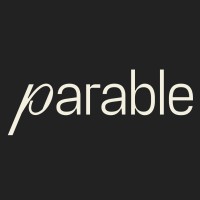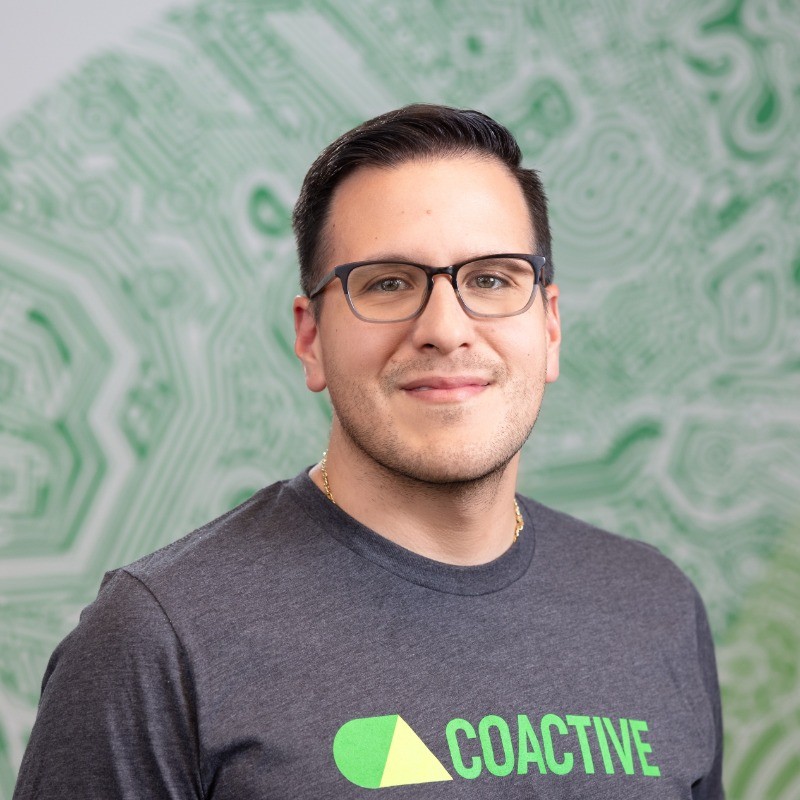Ready to build your own Founder-Led Growth engine? Book a Strategy Call
Frontlines.io | Where B2B Founders Talk GTM.
Strategic Communications Advisory For Visionary Founders
Actionable
Takeaways
Target customers who have proven business models, not just potential:
Don's go-to-market strategy specifically targets AI agent companies that have raised Series A or later rounds. His reasoning: "Hopefully the VCs that are backing them have done some due diligence. And the money they're earning is actually real." Rather than chasing every potential customer, focus on those who have already validated their revenue model and can immediately benefit from your solution.
Understand the fundamental cost structure of your customer's business model:
Don identified that AI agents have an inverted cost model compared to traditional SaaS—most costs are operational (OpEx) rather than capital (CapEx). He explains: "The cost model is basically flipped. Most of your cost is actually on the opex... Your operating costs fluctuate based on the request." This insight shaped Nevermined's entire value proposition around cost monitoring and settlement rather than just payment processing.
Create category language early, even before market adoption:
Don coined "AI commerce" in 2023 when "people were like, what the hell's an AI agent?" His approach: "It always helps to categorize and provide language that's going to allow people to understand what it is that you're talking about... It's the memeification of the category." Don't wait for your market to mature—create the vocabulary that will define it.
Focus on the operational reality, not the theoretical use case:
While competitors focus on connecting bank accounts to AI agents for consumer purchases, Don focuses on the underlying workflow costs: "How much does the workflow cost to actually render that outcome?" Understanding the true operational mechanics of your customers' business—not just their surface-level needs—can create significant competitive differentiation.
Leverage deep domain expertise to identify non-obvious problems:
Don's 20 years in AI revealed that variable AI agent responses create variable operational costs—a problem most founders wouldn't recognize. He notes: "Until recently most people didn't realize that is a major issue in operating these solutions." Deep industry experience can help you spot problems that newer entrants miss entirely.
Conversation
Highlights
Building Payment Rails for AI Agents: Don Gossen’s Vision for AI Commerce
Don Gossen had been working in artificial intelligence for two decades when most people still considered AI agents science fiction. While others debated the possibilities, Don was already building the infrastructure for what he believed would be the next fundamental shift in commerce: trillions of AI agents functioning as both merchants and consumers.
In our recent episode of Category Visionaries, Don, the Founder and CEO of Nevermined, shared how he’s creating an entirely new category—AI commerce—by solving a problem most people haven’t yet recognized exists.
The Problem Hidden in Plain Sight
When your AI assistant orders you a $15 pizza, Don explains, “The true cost to you isn’t $15, it’s $15.20.” That extra twenty cents represents something revolutionary happening behind the scenes. “That’s 20 cents goes to paying, maybe your assistant agent, but definitely your agent paying this underlying subset of agents that are actually going to coordinate that workflow.”
This seemingly minor detail reveals the foundation of Don’s vision. AI agents won’t just serve as proxies for human actions—they’ll become independent economic actors that need to transact with each other at massive scale and velocity.
Don describes two emerging modalities of AI agents. The first is “agent as proxy”—the AI assistant everyone thinks about. But the second is where the real opportunity lies: “agent as independent economic actor.” These specialized agents handle specific tasks within larger workflows, and each needs compensation for their work.
“You know, I know where the Papa John’s endpoint is, I know what the price of pepperoni is, et cetera. Let’s bring it all together,” Don explains, describing how these specialized agents coordinate to deliver outcomes.
The Infrastructure Challenge
Current payment systems simply cannot handle what Don foresees coming. “Digital services being rendered by AI agents and transacting with massive volume, super high velocity, probably at very low value,” he explains. When he scenario-planned this future back to today’s infrastructure, the gaps became obvious.
“You take a pull of the infrastructure that exists very quickly, realize that to achieve scale and meet those objectives, you have to re envision some of the payment infrastructure that’s going to be required,” Don says.
This realization led him to focus on building payment rails specifically designed for agent-to-agent transactions—a problem space he was uniquely positioned to tackle after twenty years of building AI systems at scale.
Creating a Category Before the Market Knew It Needed One
Don coined the term “AI commerce” in 2023, at a time when “people were like, what the hell’s an AI agent? What are you talking about? Why did things actually need to pay one another?” The timing might have seemed premature, but Don understood the strategic value of category creation.
“I found historically this isn’t my first startup, it’s not my first go rodeo. It always helps to categorize and provide language that’s going to allow people to understand what it is that you’re talking about even, or at least start to grasp the concept,” he explains.
The term itself was deliberate: “It was tongue in cheek. It was a play on E commerce. Where do we take that this is an evolution, you know, historical digital transactions or digital based transactions. We’re removing humans from the loop and now having digital actors or silicon based actors instead of carbon based ones actually perform the transactions.”
A Go-to-Market Strategy Built on Proven Revenue
While many startups chase potential customers, Don’s approach is methodically focused on companies with validated business models. “Specifically we’re going after verticalized AI agent builders and those that have done at least a series A, if not B or c, hopefully the VCs that are backing them have done some due diligence. And the money they’re earning is actually real.”
This strategy targets companies like Artisan and 11x on the sales side, Maven and Olivia for customer success, and Harvey for legal applications. “So then we can help them commercialize their propositions and start to, you know, earn revenue ourselves,” Don explains.
Nevermined operates on a commission model, taking a one percent cut of agent-to-agent transactions. “Our go to market and our business model is predicated on a commission, right, Rent seeking. We take a 1% cut,” Don says. This aligns Nevermined’s success directly with their customers’ transaction volume.
Understanding the Economics of AI Agents
Don’s deep experience revealed a fundamental insight that shapes Nevermined’s entire value proposition: AI agents flip traditional SaaS economics. “The Valley loves SaaS because it’s zero cost of distribution. You got a ton of capex that goes into building the product. But once the product’s ready and you get product market fit, you know, it doesn’t cost very much to scale,” he explains.
“AI agents are completely different. Right. The cost model is basically flipped. Most of your cost is actually on the opex… Your operating costs fluctuate based on the request.”
He illustrates this with a concrete example: asking a San Francisco vertical agent about the weather costs almost nothing because the answer is cached. But asking it to create a personalized itinerary based on your preferences and schedule “costs a hell of a lot more than pulling the weather information for you.”
“Until recently most people didn’t realize that is a major issue in operating these solutions,” Don notes. This insight became central to Nevermined’s differentiation strategy.
Competing on Problem Definition, Not Features
While competitors focus on connecting bank accounts to AI agents, Don takes a fundamentally different approach. “Most of our competition is trying to figure out, how do I get access to a bank account and give money to this agent so it can pay for the pizza? And we’re saying, how much does the workflow cost to actually render that outcome of Brett receiving that pizza?”
This difference in problem definition stems from Don’s operational experience building AI systems. “Both me and my co founder come out of the same kind of place, right. Like we didn’t stay in academia and you know, theorize about how this stuff was going to come to fruition. We actually built the systems at large companies and understand how they’re built and how to support them.”
The focus on workflow costs rather than payment mechanics represents Nevermined’s core competitive advantage. They solve for cost monitoring and settlement—helping AI agent builders understand their variable operational expenses and translate those costs into settlements with users who, increasingly, will be other AI agents.
Navigating the AI Hype Cycle
Despite widespread concerns about an AI bubble, Don remains confident in the trajectory. “I do think we’re in a natural cycle for all of this,” he says. “Obviously something like AI comes out and there’s going to be a lot of hoopla or the type of capability… that’s going to lead to a lot of intrigue that’s going to lead to a lot of FOMO and investors that want to get in and ultimately a lot of disappointment.”
However, Don sees current infrastructure investments as validation rather than waste. “I think an alternative way to look at that is now the capital is being spent on infrastructure, right? Data center, build out, power plant, build out, et Cetera, that’s going to handle the scaling of these models and the training and some of the inference.”
His twenty-year perspective provides context others might lack. “These are complicated systems, not just to build, but to scale and industrialize. So what we’re going through now from a usage point of view is understanding and learning how to actually deploy, industrialize and support these solutions.”
Don predicts the shift will become apparent soon: “In 6, 12, 18 months, I think we’re going to start to see, you know, the flip. We’ll get out of this trough of disillusionment onto sort of the escalating, moving into sort of the enlightenment side of things.”
Building Infrastructure for Tomorrow’s Commerce
Nevermined’s approach reflects a bet that AI agents will fundamentally reshape how digital transactions occur. By focusing on agent-to-agent payments rather than human-to-agent interactions, Don is building infrastructure for a future where specialized AI agents coordinate complex workflows and need efficient ways to compensate each other for their contributions.
“The TAM for this is absolutely massive. You know, the proverbial sky’s the limit,” Don says, referring to his vision of trillions of AI agents conducting commerce. While that future might seem distant, his methodical go-to-market strategy focuses on the companies already generating revenue from AI agents today.
As AI capabilities continue advancing and deployment challenges get resolved, Don’s early investment in AI commerce infrastructure positions Nevermined to capture value from what could become one of the largest technological shifts in commerce history. The question isn’t whether AI agents will need to pay each other—it’s whether the infrastructure will be ready when they do.














































































































